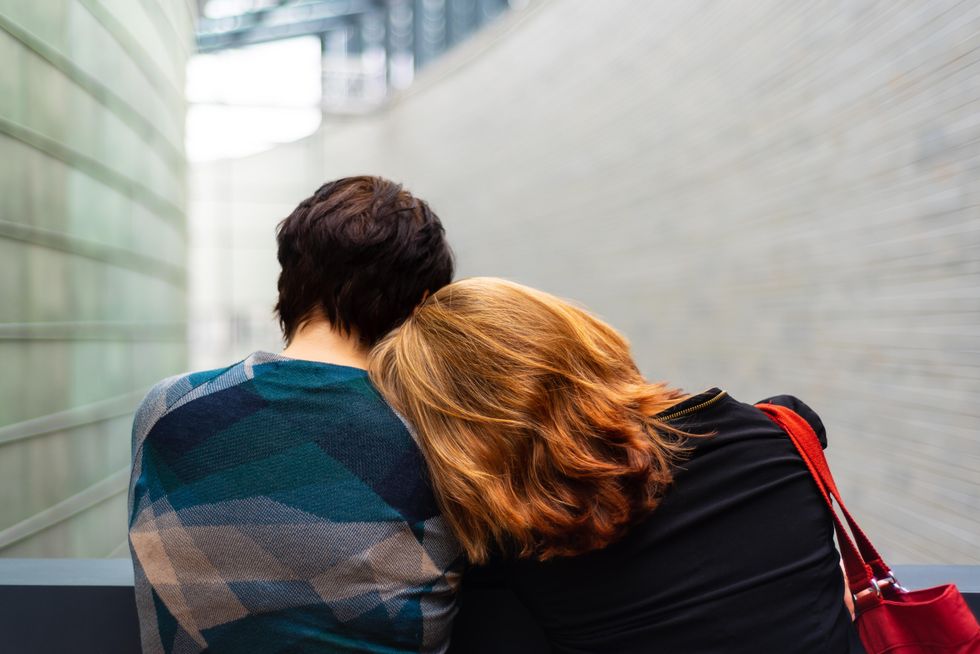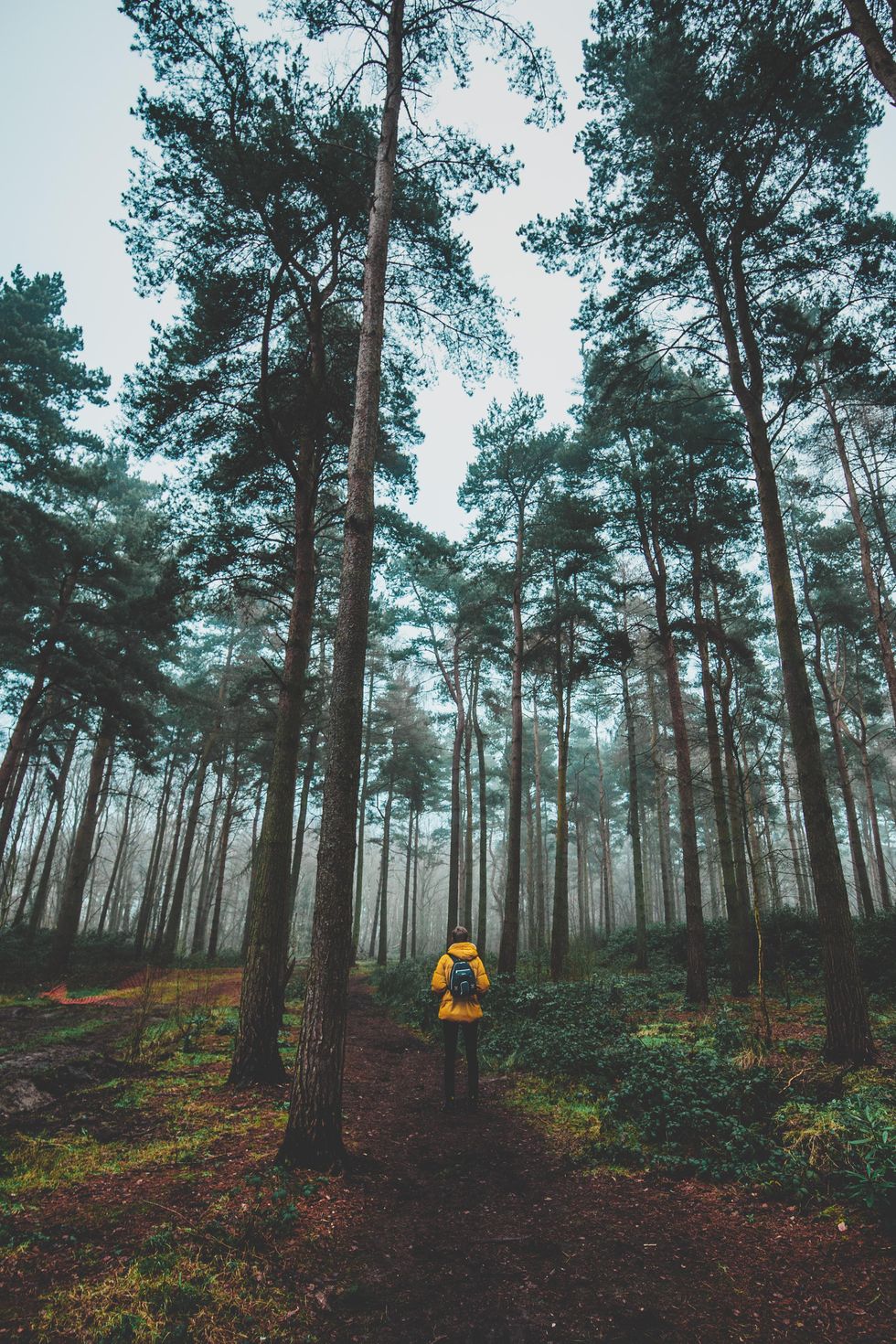Anarchy versus authority: Do humans need to be ruled?
The question of authority is one of the many topics that is heavily debated in society. Today, most people question the notion of power and authority in different communities and societies.

The question of authority is one of the many topics that is heavily debated in society. Today, most people question the notion of power and authority in different communities and societies. People like John Locke believe that the world would prevail if everyone were allowed to do as they please instinctively without any guidance or consequences.
This can be described as a state of nature. Others, like Thomas Hobbes, believe otherwise. In the Leviathan, a book written by Thomas Hobbes, he discredits the advantage of the state of nature and argues on the importance of authority for order in every society. The state of nature perspective sees a suppositional circumstance where human beings are positioned in a competitive rivalry for survival materials with no authority.
In this scenario, there would be no laws, no police force, or judicial system. This perspective is formulated to highlight the importance of control and influence in society, as Hobbes argues that without the aid of ruling sovereignty, human beings will be forced to be on their own, which will result in everyone being at war with each other.
Hobbes seems to have a very cynical view of human nature. According to Hobbes, human beings are "born with the same natural desires as it pertains to the mode of survival."
"Nature hath made men so equal, in the faculties of body, and mind; as that, though there be found one man sometimes manifestly stronger in body, or of quicker mind then another; yet when all is reckoned together, the difference between man, and man, is not so considerable, as that one man can thereupon claim to himself any benefit, to which another may not pretend, as well as he. For as to the strength of the body, the weakest has strength enough to kill the strongest, either by secret machination or by confederacy with others, that are in the same danger with himself."
Hobbes believes that human beings are naturally only concerned with themselves and their interests, which inescapably leads to discord. This dissension sees human beings hurting and killing each other without equivocation. "If any two men desire the same thing, which nevertheless they cannot both enjoy, they become enemies; and in the way to the End, endeavor to destroy, or subdue one another." Imagine groups of people stuck on an island with no technology, shelter, food, and water, or choice of clothing. What would happen? According to Hobbes, each person is most likely to do what he or she has to survive.

Hobbes emphasizes that there is no authority capable of forcing people to cooperate in the state of nature. "They are in that condition which is called war; and such a war, as is of every man, against every man." Therefore, this leads to most wanting to fight each other due to fear and distrust and reasons of competition, diffidence, and glory, which can make life in the state of nature "nasty, brutish, and short."
Due to the lack of authority in Hobbes' version of the state of nature, it is assumed that there would be no mainstream laws due to everyone having their own idea of what the right thing is to do. Because of the assumption in this scenario, there is no "right" or "wrong," In the state of nature, humans have the inherent entitlement to do whatever pleases them or what they feel they need to do to survive. Hobbes refers to the state of nature as a state of perpetual fear. He claims that even when we are not feuding with one another, we are perennially fearful that someone will assault or assassinate us. In today's world, we can see elements of that when we lock our doors at night when we put locks on our luggage when we travel and more. As humans, we have a natural right.
This natural right refers to the reasons we have naturally to survive and excel as human beings. This natural right is not founded on any influence of rules and civilization; instead, it emphasizes unrestricted self-government. Due to the hypothesis that there would be no authority or government, humans are expected to do anything they can to survive, and with this notion, safety is questioned. Using myself as an example, if I found myself in Hobbes' state of nature, my natural right would be doing everything humanly possible to enjoy and maintain my happiness.
This includes doing anything and everything possible to preserve my own life, which could involve harming someone else to get what I want. According to Hobbes' perspective, this alone proves no one is safe from the state of nature. As humans, we are born with actions performed without conscious thought as an automatic response to a stimulus. As much as the "holiest" person would like to assure himself or herself that they would not kill anyone to protect their own lives, the reality is, they probably would. We can revert to many court cases where some people are deemed "innocent" after committing murder due to defense cases. Hobbes was convinced that there were three main reasons for disputes among humans. These reasons were as follows: competitiveness, mistrust, and the aspiration for independent prestige.
Hobbes claims that human beings should give up their natural rights collectively to a specific figure or authority to avoid the wrongs of the natural right. This renouncement is what is referred to as the natural law. This natural law enables laws that instill certain rights and values in a community decided from the examination of humanity. The natural law theory is that humans instinctively know right from wrong, and Hobbes believed that human beings would be safe from each other with the enforcement of these laws. Hobbes elaborates more on this belief in "the social contract" hypothesis.

The social contract is an expression that originated from the works of fellow philosopher Plato. This theory ventures to elaborate on the correspondence between human beings and the authorities. Hobbes's social contract is a way to break out of the hazard and conflict in the state of nature. Hobbes's perspective on the social contract theory reached the settlement that human beings should surrender to sovereign power.
He trusted that the ideal motherland was one in which the people capitulated to a superior administration accountable for creating and enforcing laws that will eventually keep people safe from brutality and disorder. Highlighting the theme of selfishness as it pertains to human nature, human beings would establish the social contract and concur on not injuring another human to protect themselves from being maltreated. Hobbes believes that human beings are not typically irreproachable people. According to Hobbes, morality is simply an undertaking that advances with the movement in connection with the politics of a territory.
The enforcement of the social contract generates a supreme power. This supreme power can be best described as a person or constitutional division, which will be held accountable for inaugurating order that can be achieved by implementing laws, resolving a controversy, and investing in delinquencies. Generally, acting as a safeguard for human beings from the savagery of the state of nature.
As Hobbes believed that this robust and supreme power is the solution to terminating the state of life and instituting an untroubled civilization, he also believes that Absolute Monarchy is the only admissible form of government. In an Absolute monarchy, the sovereign, usually a king or queen, has complete jurisdiction over the directorates and his or her people. Some examples of sovereigns would be Louis XVI of France, Frederick William II of Prussia, Holy Roman Emperor Leopold II, Charles III of Spain, and Empress Catherine II of Russia. We also see forms of absolute monarchy in ancient tales like Cinderella, Marie Antoinette, and Pocahontas.
The sovereign has limitless ability and control, as supported by the social contract. A series of consultants may be gathered to assist the sovereign, but traditionally, they do not make paramount decisions. This makes way for the monarch's power to be impenetrable as they get to make decisions without outside influences.

With the social contract being in full effect, it is safe to say that its subjects have no sanction exceeding what the monarch proclaims as rules and regulations. The ruler is the most preeminent power, next to God, even in terms of uprightness regarding the dissimilarities between right and wrong behavior. Unlike Hobbes' state of nature, where ethics corresponds to personal inclinations, the social contract sees a system where the subject of what is "righteous" and "dishonorable" is established through the pronouncements made by the sovereign.
On this note, Hobbes believed that what is right or wrong is not definite but changeable and moderate, depending on the individual and the state of affairs. This ideology is described as moral relativism. This moral relativism puts emphasis on the societal indicator for conduct within an ethnic community varying from other communities. In this ideology, different groupings had dissimilar rules and did not indicate that any specific collection of rulings were superior to others because they were mostly authoritarian.
Examples of cultural relativism include things like speech, handiwork, concepts, or doctrines. For example, take a person raised in America where it is deemed suitable for a man to be married to only one woman at a time, yet in a country like Nigeria, it is normal for a man to be married to more than one woman. A person like Hobbes who accepts cultural relativism would not contemplate the "rights" and "wrongs" of the polygamous marriage because, in this principle, there isn't a "right" or "wrong."
Every society ought to be acknowledged unprejudiced. Jean Jacques Rousseau was a Genevan philosopher, writer, and composer in the 18th century. He supported Hobbes' notion of free will being efficient with the help of an impenetrable and inviolable hegemony. Although he had theories similar to that of the social contract, he disagreed with Hobbes' view on the state of nature. In Rousseau's less defeatist state of nature, he admits that human beings are always attached to their self-interests but will not harm other people to sustain due to our natural pity.
Rousseau believed in the instinctive goodness of man before society. He believed that everything Hobbes' claimed humans would fight over in the state of nature was abundant, so there would be no need for the altercations. His imagination of the ideal human being in the state of nature sees an independent individual who had no reason to socialize. In contrast with Hobbes' version of the social contract, Rousseau believes that the authority figure in a community should involve aristocracy. Hobbes thought aristocracy was the best form of government because the authority would enforce the widespread wishes of the people by finding a medium for individuals who possess different prerogatives.
With Hobbes' theory of humans giving up their rights to a supreme power to attain law and order, there is no doubt that he would be opposed to Rousseau's theory. Even though it is intended for everyone to be included in Rousseau's system, Hobbes would argue that this democracy forces laws on the minority by the majority, which can lead to democratic illegitimacy. With certain people still feeling like they are not favored, they could rebel against the system.
There is no question that it is objectionable to declare any absolute integrity pertaining to people who have not experienced society. It is safe to say that this idea of the state of nature can only be presumed since neither Rousseau nor Hobbes stated factual scenarios.
Despite failing to manifest the principle of humanity, it is quintessential to somewhat attempt to comprehend human beings' intrinsic mannerisms to make an advancement with apprehending how people should be regulated, how we communicate with each other, and to further investigate one's perception of themselves.
This post reflects the author's opinions on Thomas Hobbes' Leviathan.
Have you got something to say about this subject? Submit a post here and start the conversation.


